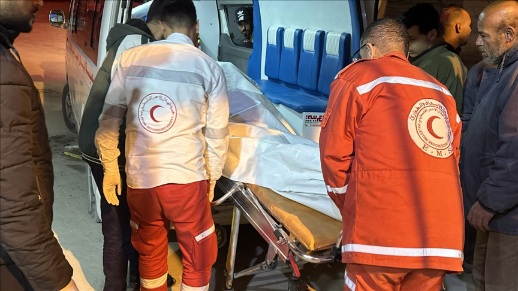A Palestinian paramedic who survived an Israeli air strike that killed eight of his colleagues in the southern Gaza city of Rafah has been confirmed to be in Israeli custody, the Palestinian Red Crescent Society (PRCS) reported on Sunday.
The paramedic, Asaad Al-Nassasra, had been missing since 30 March following a direct attack on an ambulance crew en route to provide emergency care to civilians injured in Israeli bombardment of the Al-Hashashin area in Rafah. The PRCS received confirmation from the International Committee of the Red Cross that Al-Nassasra is currently being held by Israeli authorities. The organisation described the incident as the “forcible abduction of a humanitarian volunteer while carrying out medical duties.”
The strike resulted in the deaths of eight PRCS personnel: Mustafa Khafaga, Ezz Al-Deen Shaat, Saleh Ma’amar, Rifaat Radwan, Mohammed Bahloul, Ashraf Abu Labda, Mohammed Al-Heela, and Raed Al-Sharif. The number of PRCS medics killed since the onset of hostilities on 7 October 2023 has now reached 27.
On the same day, six members of the Palestinian Civil Defence and a United Nations staff member were also killed in what humanitarian agencies have described as one of the deadliest incidents affecting emergency workers since the beginning of the conflict.
Under international humanitarian law, particularly the Fourth Geneva Convention and Additional Protocol I (1977), medical personnel and facilities are granted special protection during armed conflicts. These legal frameworks prohibit the targeting, obstruction, or detention of medical workers. Deliberate attacks against them may constitute war crimes subject to prosecution before international tribunals.
The escalation in attacks on humanitarian personnel in Gaza—through killings, destruction of medical infrastructure, and detention—underscores the increasingly perilous environment for those providing life-saving assistance. Humanitarian organisations have warned that the apparent targeting of medics and first responders is contributing to the collapse of Gaza’s emergency care capacity.
The continued absence of effective international accountability mechanisms has drawn criticism from human rights groups, who argue that the silence of the global community may be emboldening further violations of international law and placing medical workers at heightened risk.


























